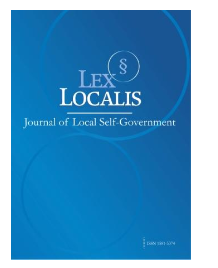THE IMPACT OF INSTITUTIONAL QUALITY ON FOREIGN DIRECT INVESTMENT IN MOROCCO: AN EMPIRICAL ANALYSIS
DOI:
https://doi.org/10.52152/802043Keywords:
Governance indicator; Regulatory environment; Political risk analysis; Investment climate; Cointegration analysis; Time series econometricsAbstract
Institutional quality is increasingly recognized as a decisive factor in shaping the location of foreign direct investment (FDI). This study examines the effect of institutional quality on FDI inflows to Morocco by analyzing four key dimensions: political stability, control of corruption, economic freedom, and regulatory quality. Using annual time series data from 1996 to 2022, the research employed the cointegration approach and the vector error correction model (VECM) to capture both long-term relationships and short-term dynamics. The results showed that all selected institutional indicators had statistically significant effects on FDI inflows. In particular, political stability and regulatory quality emerged as the most influential factors in attracting foreign investment. These findings suggest that institutional reforms can have a measurable impact on Morocco’s investment climate. It concludes by suggesting that improving governance, transparency, and the regulatory environment is essential to enhancing the country’s ability to attract long-term investment and stimulate economic development. Based on the empirical evidence supporting the strategic importance of institutional quality in investment policy design, the article offers insights that are relevant for policymakers and development planners in emerging economies.
Downloads
Published
Issue
Section
License
Copyright (c) 2025 Lex localis - Journal of Local Self-Government

This work is licensed under a Creative Commons Attribution-NonCommercial-NoDerivatives 4.0 International License.








